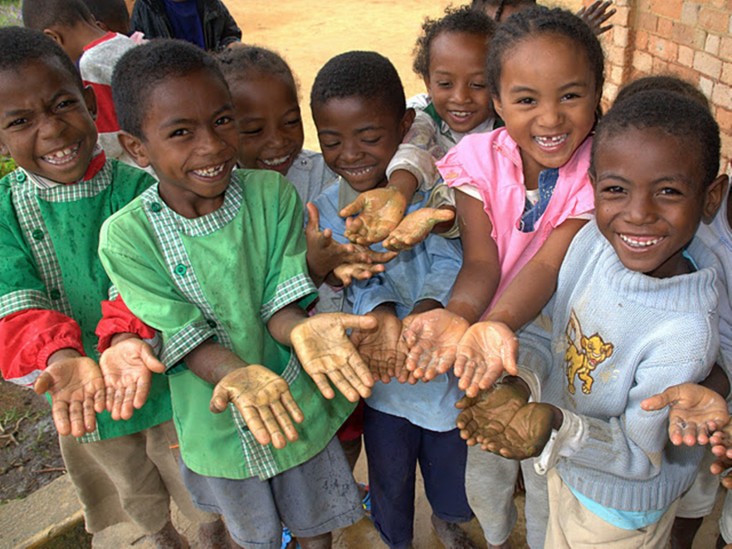- What We Do
- Agriculture and Food Security
- Democracy, Human Rights and Governance
- Economic Growth and Trade
- Education
- Ending Extreme Poverty
- Environment and Global Climate Change
- Gender Equality and Women's Empowerment
- Global Health
- Water and Sanitation
- Water and Development Strategy
- Advancing Water Supply, Sanitation and Hygiene
- Urban Sanitation
- Promoting Water Productivity and Efficiency
- Investing in Water and Natural Resources Management
- Enhancing Water and Disaster Risk Reduction
- Learning and Sharing in the Water Sector
- From The Field
- World Water Day
- Working in Crises and Conflict
- U.S. Global Development Lab

According to UNICEF, approximately 760,000 children under the age of 5 die every year from diarrhea. Providing clean water and sanitation are not enough. Promoting better hygiene is an important way to ensure that these changes have positive health outcomes over the long term. As such, USAID is working to increase the correct and consistent adoption of three key hygiene behaviors:
- Handwashing with soap at critical times;
- Safe disposal and management of excreta; and
- Improving household water storage, handling and treatment.
To help change behaviors at the community and household level, USAID works with local governments, the private sector and communities to foster institutional and policy support, develop targeted messages, increase demand and strengthen the production and marketing of hygiene products and services. USAID has also adopted community-based approaches to behavior change, such as working through health and agriculture extension services, to support communities transitioning from open defecation.
Specific program examples include:
-
In Eastern Province in Zambia, theSPLASH school WASH program increased the number of schools with clean sanitation facilities, handwashing stations and safe drinking water. Teachers at these schools work with students to use and maintain the new facilities to improve their hygiene habits, and school WASH clubs help students learn and teach others about handwashing through songs, skits and poems.
-
In northern Mali, the the WASHplus project integrates nutrition and WASH to reduce undernutrition in young children. Malnourished children and their caretakers are referred to centers for supplemental food and their parents learn how to prepare nutritious food and the importance of handwashing with soap before preparing food. WASHplus builds upon the successes of previous USAID programs, including the Hygiene Improvement Project.
-
In Ethiopia, USAID’s Office of U.S. Foreign Disaster Assistance is teaching proper hand-washing techniques to tribal communities while training and empowering women to be instructors.
-
In Liberia, the Assisting Liberians with Education to Reduce Transmission (ALERT) program engaged as many communities as possible to quickly share information on proper hygiene practices, including handwashing with soap, and managed safe burials to prevent transmission and control the Ebola outbreak.
-
USAID’s Global Health Bureau provides ongoing support to the Global Public-Private Partnership for Handwashing with Soap—a coalition that brings together the expertise, ideas, resources, and reach of the public and private sectors around the world to promote handwashing with soap every day of the year.
Additional Resources:
To learn more about Global Handwashing Day, and ways to participate visit: http://globalhandwashing.org/global-handwashing-day/







Comment
Make a general inquiry or suggest an improvement.